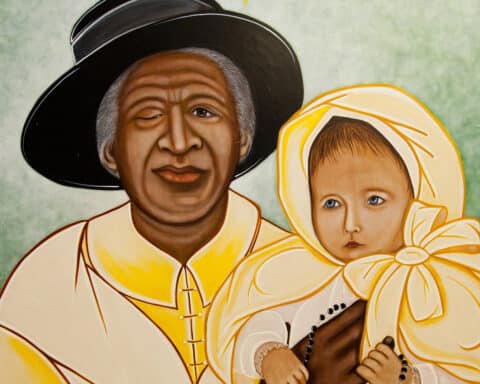
The African people brought to the New World were obviously stolen people. It was always a mortal sin to own a stolen person. There are also references in Exodus to the ownership and treatment of “slaves,” so these “slaves” are apparently not the same as stolen people because the Jews are specifically allowed to have these people. Is not the slavery of the Bible different from the slavery of the Americas?
— Name, location withheld
Answer: Though your claims here are not indisputable, there is certainly merit in them. The terms “stolen,” “slave” and “servant” are sometimes used strictly and sometimes in a wider sense interchangeably in both the Hebrew Bible and the Greek Septuagint. That said, in the ancient world there was a difference between a stolen or kidnapped person and a slave. Most often slavery was imposed in the ancient world as a real or perceived act of justice. Those enslaved had either committed a crime, owed large debts, or were combatants in a war against the nation that enslaved them. Enslavement in cases like this was an alternative to prison or capital punishment. “Man-stealing” or kidnapping was to capture someone guilty of no crime, possessing no debt or warlike tendencies, and treat him as a slave. As you point out, this is condemned: “A kidnapper, whether he sells the person or the person is found in his possession, shall be put to death” (Ex 21:16). The same Book of Exodus however does acknowledge the possession of slaves and the proper treatment of them (cf. Ex 12:44).
This also goes to illustrate that the slavery of the colonial period was quite different that the slavery of the biblical period. As noted, the slaves of the ancient world were rendered so by debt, crime or acts of war. The African slaves of the Colonial period did none of this and were enslaved without cause other than greed and injustice. Perhaps, as you note, it is better to describe them as stolen people than as slaves.
But words are sensitive things. Calling them “stolen people” rather than slaves may promote a proper distinction but nonetheless may cause offense to some who see this nomenclature as having less impact and watering down the terrible evils of the antebellum South.
Salvation
Question: Jesus is clear that salvation is achieved only through him. However, the Church has recently seemed to downplay this. What are we to believe?
— John Smith, via email
Answer: The teaching that there is no salvation outside the Church remains a doctrine of the Church. However its interpretation has become more nuanced as the centuries have gone by. Coming to realize the vast numbers of people who could not reasonably have heard of Christ or been sufficiently catechized to put saving faith in him, the Church, in meditating on God’s justice, presupposes that God will not hold individuals accountable for what they could not have reasonably known. That said, no one can be saved apart from Christ and his body, the Church. If they are saved, it is through the prayers and merits of Christ and his Church. The Second Vatican Council has the following to say about such individuals:
“God is not far distant from those who in shadows and images seek the unknown God, for it is he who gives to all men life and breath and all things, and as savior wills that all men be saved. Those also can attain to salvation who through no fault of their own do not know the Gospel of Christ or his Church, yet sincerely seek God and moved by grace strive by their deeds to do his will as it is known to them through the dictates of conscience. … Whatever good or truth is found amongst them is looked upon by the Church as a preparation for the Gospel. But very often men, deceived by the Evil One, have become vain in their reasonings and have exchanged the truth of God for a lie, serving the creature rather than the Creator. … Wherefore to promote the glory of God and procure the salvation of all of these, and mindful of the command of the Lord, ‘Preach the Gospel to every creature,’ the Church fosters the missions with care and attention” (Lumen Gentium, No. 16).
Hence, salvation apart from explicit faith in Christ is difficult, and the Church must constantly seek to spread God’s word and effectively catechize the whole world.
Msgr. Charles Pope is the pastor of Holy Comforter-St. Cyprian in Washington, D.C., and writes for the Archdiocese of Washington, D.C. at blog.adw.org. Send questions to msgrpope@osv.com.





